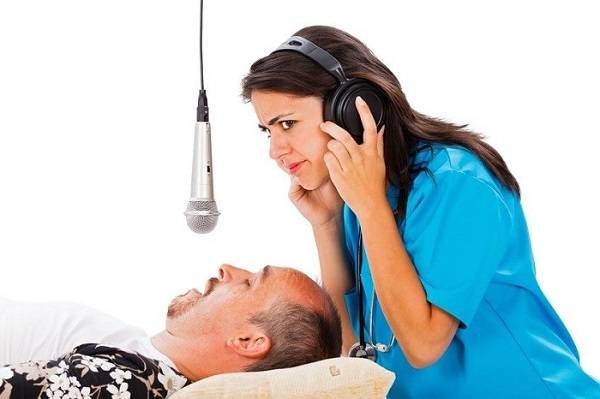11 reasons to sleep talking and its solution
sleep talking causes? It must have happened to you that you wake up at night from the sound of another talk. Talking in your sleep without knowing it is a widespread phenomenon. Studies have shown that up to 66% of people have experienced this at some point in their lives. Although talking in your sleep is usually harmless and does not require any medical treatment, it can upset those around you and keep them awake. To this end, research has been conducted in this area of moist health to examine the causes of sleep apnea and ways to prevent it.
What causes sleep talk?
Genetics
Experts cannot say precisely why people talk in their sleep, but medical studies have shown that it can have genetic roots. A study of twins who usually talked in their sleep showed that their parents had the same problem.

Lack of sleep
Almost everyone experiences talking in their sleep, but some factors, especially sleep deprivation, can cause it. Medical experts believe that most people talk in their sleep when they are stressed or lack sleep because sleep deprivation affects the brain and affects sleep quality.
Sleep disorders
Speaking in a dream is a disorder in itself known as “speech sleep.” Talking can happen to people at any time, but people with sleep disorders annoy those around them with some sounds. Doctors believe that there is a connection between verbal sleep, sleepwalking, and nightmares.
Special drugs
Some medications can interfere with sleep as a side effect. Medications that can trigger sleep behaviors, including talking in sleep, usually affect muscle control during sleep. As muscle mass increases and become involuntary, you may kick, punch, walk, and talk in your sleep. Some common medications, such as antidepressants, can cause this disorder.
Sleep Behavior Disorder (REM)
Active sleep (rapid eye movement) is considered a disorder. This sleep stage accounts for approximately 20-25% of the total time we spend sleeping and is a busy time for the brain. During this stage, the eyes move, blood pressure rises, heart rate increases, and the brainwave activity is similar to waking up.
During REM, the body remains at rest and almost paralyzed, which prevents complete sleep. People with this disorder talk and show violence or even get up to move around in bed.
Fever
Talking when you have a high fever is quite common because your body and brain are usually tired. Instead of trying to recover, they wallow in their sadness and thus, experience more failure.
Eating disorders
If you talk in your sleep, you may need to look inside yourself, especially if you gain significant weight. This disorder occurs when people eat while asleep; they can even go into the kitchen and prepare a full meal at bedtime without realizing it.
Emotional stress, anxiety, and depression
People with irregular sleep patterns talk more during sleep. This could be because the brain has trouble shutting down at night and disrupting the sleep cycle, or the subconscious mind may be working.
Night horror
Nighttime sleep is more common in children but may also occur in adults. During night terrors, the person may seem awake. They can shout, cry, scream, kick and fight. Night terrors usually occur during the rapid eye movement phase. The next morning, the person is unlikely to remember what he experienced in the night terrors.

Mental health disorder and sleep talking:
Mental health disorders are often associated with sleep disorders. At this stage, scientists cannot determine whether a mental health problem has led to the disorder or whether a sleep disorder can eventually lead to mental health challenges.

Drug use and stimulants
Some drugs act as stimulants and wake you up. Others can make you drowsy. In any case, their effects are temporary and disappear. They affect the body’s internal clock or circadian rhythm and disrupt the sleep program. As a result, you will probably talk in your sleep.
How to control sleep talking:
There is really no way to reduce sleep apnea, but changing some habits can be effective. Some tips for healthy sleep include:
- Avoid eating heavy meals close to bedtime
- Use a quality bed, mattress, and pillow with quality and comfort
- Avoid caffeine in the late afternoon and evening
- Have a consistent and daily sleep schedule
- Avoid stress
- Get medical advice
- Keep electronics away from the bedroom
- Eliminate any noise while sleeping
Also read:
Signs that a person has sadism
Obsessive-compulsive disorder (OCD) : Symptoms, causes, and treatment
Bipolar disorder; Everything about symptoms and cause and treatment










